Prof. Dr. Denis J. Glencross (1939-1994), Australia
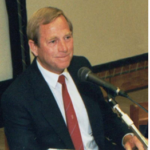
Professor, Dr. Denis J. Glencross regarded as a father of Australian Sport Psychology was born in Perth, Australia in 1939. His distinguished career path started with master’s degree at the University of Western Australia (1964) and PhD in Psychology at the University of Adelaide (1972). In parallel with doctoral studies, he rose through the positions at Flinders University up to Associate Professor. During the years at Flinders, he established the cognitive and performance laboratory, and research he conducted was internationally recognized with fellowships in England, France, and the Netherlands.
In 1988, Dr. Glencross returned to Perth as Professor of Psychology and Head of the School of Psychology at Curtin University of Technology. There, Denis expanded the master’s psychology program to include sports psychology and developed a doctoral program that attracted Australian and international students. As a recipient of numerous research grants, he contributed with many original research articles dealing with the cognitive aspects of movement skills, information processing, decision-making, motor control, reading disabilities, talent identification, keyboard training, and driving safety.
Glencross’s skills as a senior hockey coach and former elite Australian player enabled him to understand the needs of coaches and athletes, and to bridge the gap between theory and practice. He made a great contribution to development of South Australian hockey, guiding talented young players to national honors. He lifted standards with his four hockey coaching books and coaching manuals for the Australian Hockey Association and the Australian Coaching Council.
During the 1980s Glencross helped organize a national umbrella group for sport psychology and was the first president of the Sport Psychology Association of Australia and New Zealand. He was no less significant in advancing sport psychology in the international arena. A Managing Council member of the International Society of Sport Psychology (ISSP) since the late 1980s, Glencross was also responsible for forming the Asian and South Pacific Association of Sport Psychology in 1989 and inaugural international congress held in Melbourne in 1992. This culminated in his election as the ISSP President in 1993. One of his first initiatives as the ISSP President was an idea of to promote sport and exercise psychology among students and young professionals. This idea was developed into establishing a Pre-Congress Workshop named after Glencross in recognition of the sterling service that Dr. Glencross provided to the ISSP. Glencross Workshop for local and international students has been delivered at every ISSP Congress since 1997. Denis passed away in August 1994, and by people who knew him, he is remembered as an excellent professional, but also as a warm, energetic, and generous person, loving to share his time with others, whether playing hockey or squash, fishing or swimming, or hosting and cooking for guests.
Prof. Dr. Dorothy (Dot) Harris (1931-1991), USA
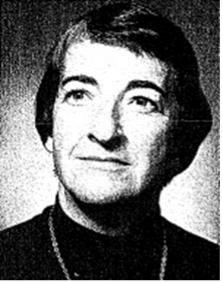
Professor, Dr. Dorothy V. Harris (1931-1991) is regarded as a true pioneer and even “a mother” of sport and exercise psychology. Being born in the United States, she spent there her entire career. Dorothy Harris earned a master’s degree from the University of North Carolina-Greensboro and a Ph.D. from the University of Iowa. At her student years, she was active in several sports, especially in basketball, swimming, tennis, and field hockey. In 1970 Dr. Harris moved to the Pennsylvania State University, where she started the nation’s first graduate sport psychology specialization, and since 1973 was a Professor in Physical Education. During her years at Penn State Dr. Harris supervised about one hundred graduate students, many of them from abroad. Her former students recollected that Professor Harris was a challenging supervisor who stimulated young researchers to think creatively and hold for high standards, but she also was genuinely caring and supportive.
During her time at Penn State, Dr. Harris established a research lab with foci on intersections between psychology/social psychology and physiology of physical education and women’ sport. She wrote/co-authored five books and had articles published in numerous professional journals. Her papers are housed at Penn State as the “Dorothy Harris Papers 1951-1991”. She was a contributing editor to WomenSports magazine, editor of the International Society of Sport Psychology (ISSP) newsletter and associate editor of the International Journal of Sports Psychology. She was an invited/keynote speaker at national and international meetings, including conferences in North America, Europe, Israel, and Japan. She served on numerous regional and national committees, including the U.S. Olympic Sports Medicine Committee on Sports Psychology. Colleges who worked with Dorothy described her as a positive and passionate professional leader looking at big picture and standing for equity in physical education and sport.
Dr. Harris’s contributions as a trailblazer and advocate in the field of sport psychology, physical education, and for women in sport had been well acknowledged. A longtime member of Association of Applied Sport Psychology (AASP) and a Fellow, she was the first person holding many important roles in our field. She was the first American and woman to become a member of the ISSP Managing Council, the first resident sport psychologist at the United States Olympics Committee’s (USOC) training center, the first recipient of the Women’s Sport Foundation’s Award for contribution to women in sport, the first woman to be awarded a Fulbright Fellowship in Sport Psychology, and in 1972 she headed the first research conference on women in sports. She was also the first woman president of the North American Society of Sport Psychology and Physical Activity. The AASP has established the Dorothy V. Harris Memorial Award to recognize sport psychology professionals in the early stage of their careers.
Dr. Ferruccio Antonelli, (1927 – 2000), Italy
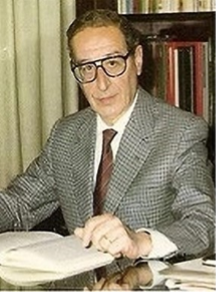
Ferruccio Antonelli was born in S. Elpidio a Mare, Italy, on 19 October 1927, and lived in Rome from 6 years old where he died on 3 January 2000. He graduated in Medicine in 1951, specializing in Nervous and Mental Diseases and was a qualified lecturer in Psychiatry. He is considered the “Father” of sport psychology. Antonelli was well ahead of his time and in 1965 he invited all of the individuals who were active in sport psychology around the world to an international meeting in Rome when major national sport psychology organizations were not disseminated. Then, the 1(st) World Congress of Sport Psychology was held and the International Society of Sport Psychology (ISSP) was formed with Antonelli being elected its President. The Congress was considered a great success due to Antonelli’s organizational and diplomatic skills, as well as to his professional reputation and social position. As a consequence, research and publications were stimulated and the number of registered papers increased from 814 between 1898 and 1963, to 2687 after Rome. Antonelli was the ISSP president for two terms. In 1973, during the 3rd Word Congress in Madrid, he was named ISSP Honorary President, and in the 2015 ISSP Managing Council meeting (Rome), he was designated Founding President.
The “International Journal of Sport Psychology” established in 1971 – the very first specific to this discipline – was another major contribution of Antonelli to the development of sport psychology, despite many difficulties encountered in this task, serving as Editor-in-Chief until 1988.
In the applied field working for the Italian Olympic Committee in Rome, Antonelli consulted thousands of athletes of different sports and taught courses of sport psychology to the coaches of several federations at the School of Sport (Sport School).
Antonelli’s legacy can be summarized in three main aspects. The first concerns his energy to achieve goals until the last year of his life, always trying to innovate, believing and fighting for his dreams. Secondly, he strongly believed that the sport psychologist’s professional work as a consultant should be based on a deep and extensive knowledge in order to be able to confidently and effectively use all the psychological techniques and strategies needed in the different environmental situations. Third, he promoted the idea of the need for a specific training to become a sport psychologist.
Prof. Ferruccio Antonelli published 12 books, the best known being the handbook “Psicologia dello Sport,” (“Sport Psychology”) (1978), and more than 300 articles in sport psychology, psychology, and psychosomatic medicine. Among other awards, he was appointed Knight of the Italian Republic, awarded by the highest recognition in sport, and received the Philip Noel-Baker Prize in 1979 from the International Council of Sport and Physical Education of UNESCO.
Prof. Dr. Atshushi Fujita (1931 – 2014), Japan
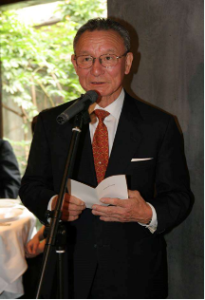
Dr. Fujita had a great impact on the development of sport psychology in Japan, in Asia, and around the globe based on his outstanding engagement in the ISSP. He is a significant representative of the early generation in the ISSP, serving as a MC member from 1981 to 1989 and as a Vice President from 1989- 1995 who served as an acting President until 1997 after the sudden death of Denis Glencross in 1994.
Dr. Fujita earned his doctorate from the Tokyo University in 1971 and from 1959 to 1967 he was a faculty member at Nippon Sport Sciences University in Tokyo. Then he moved to Nihon University until his retirement in 2001. As a professor he was very much interested in experimental sport psychology and motivated his more than fifty doctoral students (6 earned a professorship) for, i.a., psycho-physiological research on eye-hand coordination and reaction time, training effects on memory of motor skills, and developmental changes of selective jumping reaction time. His PhD thesis was on “Physiological Mechanisms of Spatial Localization and Motor Control” (translated from the orig. in Japanese; Fumado Publishing Co.,1974). He published 22 books and 44 scientific articles.
Dr. Fujita already started his international orientation when he was on the board of directors of the Japanese Society of Sport Psychology (JSSPS) from 1974-1989 and built excellent relationships to, e.g. Hermann Rieder (Germany) and Robert Singer (USA). In his professional and organizational context, he was very initiative when he served as the President of the Japanese society from 1993-2000 and a MC member of the ISSP. He fostered discussions with colleagues in Asia for the possibility of forming an Asian society of sport psychology. Further discussions with the Australian Denis Glencross who was also a member of the MC led to the formation of the Asian-South Pacific Association of Sport Psychology (ASPASP) which was officially announced in 1989 at the occasion of the 7th ISSP World Congress in Singapore. Dr. Fujita served as the first President of ASPASP from 1988 to 1995. Especially in bringing this society on the international sport psychology map and in the years of an acting President of the ISSP Dr. Fujita demonstrated his outstanding leadership skills and unforgettable personal commitment to the development of international Sport and Exercise Psychology (SEP). In 1993 he received the ISSP honor award in appreciation for his contributions over many years to the Society.
Those colleagues in the international sport psychology community who had the opportunity to know him and the honor to collaborate with Professor Fujita will always have fond memories of him and will never forget how he was a model of a team player in and for SEP, his commitment to the advancement and recognition of academic and applied sport psychology in many parts of the world, the growth of ISSP, ASPASP, and JSSPS. Since he was involved in the JSSPS it was his mission to promote sport psychology in Asia, around the globe, and especially in developing countries. He was appreciated for his charm, wit, and ability to make friends, invaluable for the development of the international scientific community in SEP.
Prof. Dr. Hermann Rieder (1928-2009), Germany
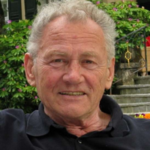
Dr. Rieder was one of the most inspiring personalities in the early years of academic sport science and in particular Sport and Exercise Psychology (SEP), especially in regard to the international development of SEP. By using his social and organizational skills, it was possible to bridge cultural gaps and bringing together academics from around the world interested in the interrelation of sports activities and psychological processes.
Based on an interdisciplinary understanding of sport science Professor Rieder was one of the most influential proponents of sport therapy in Germany and far beyond. He brought to the attention of his students and colleagues the psychological potential of sports for various clinical groups, and handicapped people. In his lectures and papers he emphasized that sport psychology is of utmost relevancy for therapeutic means with various clinical groups, e.g. depressive patients, in the rehabilitation process not only of injured athletes but also for clients suffering, e.g. from heart disease or diabetes, as well as for athletes and coaches in high performance sports. He initiated and supported research in these domains when he served (in addition to his Professorship at the University in Heidelberg) as the first Director of the central governmental funding institution for sport science in Germany (Bundesinstitut für Sportwissenschaft, 1970-1973) and motivated more than forty doctoral students for research to explore and provide proves for the therapeutic potential and psychological influence of sports activities as well as of psychological methods for elite athletes, e.g. methods for psycho-regulation and psycho-physiological regeneration.
Dr. Rieder was a founding member of the German Association for Sport Psychology (asp) and served as the second President (1. Vorsitzender) of this organization from 1971 until 1985. He strongly supported the development of the ISSP, took care that the asp became a group member of the ISSP and served already for the second ISSP MC as a General Secretary together with Ferrer?Hombravella and Miroslav Vanek. In the following terms (1973-1985) in the office of General Secretary he was very much engaged to increase the membership of the society, to include national societies as group members, to bring sport psychology and the ISSP to the attention of colleagues around the globe and to manage the ISSP World Congresses to become the most significant international professional event in this young domain. For his groundbreaking initiatives, leadership, and contributions to sport science and sport psychology Professor Rieder was awarded repeatedly, e.g. he was honored by the Philip Noel-Baker-Award of the ICSSPE and 1997 he received The ISSP Distinguished International Sport Psychologist Award.
Those who had the opportunity to meet and discuss with Dr. Rieder have been impressed by his personality (always curious, open-minded, optimistic, facing, and constructive). His unique background as a successful athlete (four times German vice-champion in javelin and two times gold medalist at the World University Championships) and a most successful coach (from 1966 until 1972 he was the national coach for javelin in Germany and 1972 he was the coach of the German gold medalist in javelin at the Olympic Games 1972 in Munich, 1979 coach of the Universiade champion and 1986 coach of the European champion) in combination with his remarkable scope of expertise in movement and exercise science and in particular sport, exercise and performance psychology made him a much noticed advisor for academics as well as for practitioners.
José Ferrer-Hombravella (1915-1976), Spain
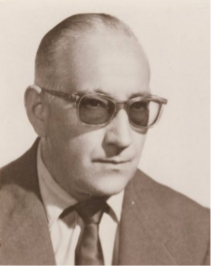
José Ferrer-Hombravella was born in Argentina (1915), of Catalan parents, but the whole family returned to Catalonia, Spain in 1928 where he stayed his whole life. After studying medicine, he specialized in psychiatry and became very interested in sports along with his clinical practice. He started his “medical-psychological” activity around 1958, working with several team sports, as well as teaching courses for coaches and judges.
Ferrer Hombravella participated in the 1963 Congress of the Latin Group of Sports Medicine, in Barcelona, that led to the idea shared by him, the Italian Ferruccio Antonelli, the Spanish Jose Maria Cagigal and the French Michel Bouet to organize the I World Congress (Rome, 1965). He had a major role in the organization of the congress and also developed leading actions towards the inception of ISSP that was his idea and would happen during the Congress.
He became the ISSP Secretary General of the first ISSP Managing Council (1965-1968). In the following term (1968-1973) he shared this position with Miroslav Vanek, and with Hermann Rieder in the term 1973-1977 during which he passed away.
He was very active in international activities in Europe, North America and Latin America where he presented lectures about the most relevant topics at that time. Besides ISSP, he influenced other scientific societies both as a member of the boards or supporting their establishment (ex.: Central-American Federation of SP; International Association for the Integral Sports Study; Latin Group of Sports Medicine; European Federation of SP-FEPSAC). At the National level, he was a leading member of several societies. Ferrer-Hombravella was one of the pioneers of sport psychology in Spain and was interested in the clinical, applied and research aspects. For example, at the Sport Medicine Centre at the Blume Residence of Barcelona which was an elite training center, athletes were psychologically evaluated and results supported research published in scientific journals and presented at international congresses. He was a founder Editorial Member of Apuntes de Medicina Deportiva (Notes on Sport Medicine) the journal founded in that center in 1964.
Being a pioneer in the applied methods at international level, he designed a mental training method, based on the psychotonic approach, together with Miroslav Vanek, Eric De Winter and Cabot-Boix who were also leading persons in the 60’s.
In sum, José Ferrer-Hombravella was a leading pioneer of modern SP characterized by organizational achievements, influential relational efforts, applied innovative work, publications and presentations at scientific events in different parts of the World.
Miroslav Vanek (1923 – 2001), Czechoslovakia/Czech Republic
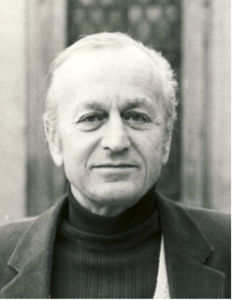
Professor Miroslav Vanek was born and died in Prague, where he developed his whole career at Charles University. Devoted to sport, he started his studies in psychology and physical education at Charles University after the Word War II, with an early interest in sport psychology. In 1952 he presented the dissertation “The importance of I.P. Pavlov’s teachings for physical education from the point of view of psychology”, and in 1964 an “Habilitation Thesis” on the athletes’ psychological preparation. Being an organizational leader in his country prepared him for a prestigious international activity that began in 1964 as a keynote speaker at the Tokyo sport scientific congress, preliminary to the Olympics, organized by IOC and FIMS.
Prof. Vanek was very active during the 1(st) World Congress of SP (Rome, 1965), including in the ISSP founding meeting. He became member of the ISSP first Managing Council. Until 1993, he was Secretary, President and Past-President. His international activity was during the Cold War difficult period, and he was divided between his inner admiration regarding the democratic World – influenced by his first visit to USA in 1968 – and his professional and family life in a Communist regime. Humanistic and empathic, talented to languages, he acted as a bridge maker promoting cooperation among colleagues from both sides of the Iron Curtin. The late ISSP president Atsushi Fujita considered one of Vanek’s great successes eliminating the conflicts between the NASPSPA and the FEPSAC, which led to the involvement of both societies in the ISSP.
The 10 weeks period with Bryant Cratty at the UCLA, USA in 1968, resulted in the milestone book “Psychology and the Superior Athlete” (Vanek & Cratty, 1970. Macmillan Publ.). Moreover, he has over 200 national and international publications, and assigned John Salmela the task of writing “The World Sport Psychology Sourcebook” (Salmela, 1981. Mouvement Publ.), the result of a project that would lead Salmela throughout Europe, Africa, Asia and Oceania. Under his leadership in the ISSP, three world congresses were organized (Prague 1977, Ottawa 1981, Copenhagen 1985). Additionally, he cooperated in the organization of the FEPSAC European Congress in Prague, 1999.
As an applied sport psychologist, he worked with top Czech athletes, including medallists in major international competitions, and he was the first sport psychologist officially accredited at an Olympic site (Mexico, 1968), which he repeated in several Summer and Winter Games, opening the way to other professionals. His concept of “model training” aiming at the athletes’ psychological preparation became disseminated and used internationally.
Among other awards, Prof. Vanek was FEPSAC honorary member, received the ISSP Distinguished International Sport Psychologist Award, and the ICSSPE Noël-Baker Award. He also loved reading and writing poetry and one of his poems was awarded in the poetry competition during the 1948 London Olympics.
Robert N. (Bob) Singer(1936 – 2019), USA
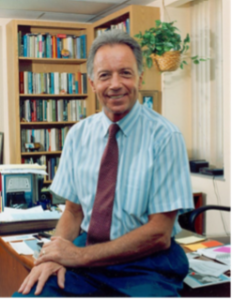
Bob Singer graduated at the Brooklyn College in 1961, completed his M.S. at Penn State University in 1962, and his Ph.D. from Ohio State University in 1964. After serving at several Universities he finished his career at the University of Florida in 2002, where he served as Chair of the Department of Exercise and Sport Sciences for 15 years, leading it to international prominence. He was a true pioneer in the fields of motor learning and sport psychology.
Singer combined his high scientific qualities that made him one of the most prolific and well-known authors in our field with a unique character, social skills, and leadership qualities. For twenty years he served the ISSP managing council and became its President during two terms. He contributed decisively to stabilize ISSP, promote it worldwide, give it a functional structure, and focus its mission in the scientific and educational development. During the Cold War, Bob revealed an outstanding capacity to establish positive relationships and work with colleagues from the Eastern counties of the Iron Curtin, despite being a citizen of the United States. He used his unique leadership qualities when leading national and international missions and Organizations, as well as his students.
Singer’s scientific, methodological and professional contribution is published in 17 books, over 200 research, scientific, and professional articles, and 25 book chapters. His two seminal books, “Motor learning and human performance: An application to physical education skills” (1968), and the “Handbook of Research on Sport Psychology” (1993) were essential milestones in the development of sport psychology in the world. Moreover, he influenced the scientific and applied SP in various geographic areas by teaching dozens of Ph.D. students from different continents, presenting speeches and teaching in more than 50 countries.
Among other awards, he received the inaugural award for Distinguished Contributions to the Science of Exercise of Sport and Exercise Psychology from the American Psychological Association, the Distinguished International Sport Psychology award from the International Society of Sport Psychology, and the Distinguished Scholar award from the North American Society for the Psychology of Sport and Physical Activity.
In sum, Dr. Robert Singer was an inspiring role model to a number of scholars and practitioners in the field of sport psychology all over the World due to both his scientific and pedagogical qualities, and personality characteristics. His vision led him to promote important actions and stimulate leaders in different geographical areas that contributed to the SP development internationally.
Dr. Terry Orlick (1945-2021), Canada

Dr. Terry Orlick worked at Montclair State University (1968-1970), the University of Western Ontario (1972-1973), and the University of Ottawa (1973-2017). Throughout his 50 years as a university scholar and researcher, he was instrumental in establishing the popular thesis and professional master’s programs in the School of Human Kinetics, which continues to attract hundreds of Canadian and international students and visiting professors. Dr. Orlick also founded the Canadian Mental Training Registry, a professional organization that eventually served as the foundation for the creation of the Canadian Sport Psychology Association in 2006. Dr. Orlick was frequently sought as not only a mental training consultant within Canada and abroad, in Olympic (example: Canadian Rowing Teams, Alpine Canada) and professional sport (example: National Hockey League’s Ottawa Senators), but also an international keynote speaker by many organizations including Association for Applied Sport Psychology, the Canadian Sport Psychology Association, the International Society of Sport Psychology, and the International Society for Mental Training and Excellence.
Terry Orlick, PhD, was also the Founder of the Zone of Excellence and was a world-renowned leader in teaching and coaching people how to perform to their capacity and enhance the joyfulness of their lives. He led the field of focus training for excellence in multiple disciplines for over 50 years. Orlick worked with thousands of Olympic and Professional athletes and coaches, corporate leaders, astronauts, surgeons, top classical musicians, dancers, opera singers and other performing artists, mission control professionals, and many others engaged in high stress performance missions.
In addition to his extensive work with high level performers, Terry Orlick committed his professional life to helping children and teenagers grow and perform with a stronger sense of self-confidence, harmony and joy in their lives. His work has made a meaningful difference in the lives of millions of people around the world including children, parents, teachers and many of the world’s best performers.
Terry was the author of over 200 articles, 24 books and 8 audio CD’s which have sold millions of copies worldwide. His highly acclaimed books included In Pursuit of Excellence, Positive Living Skills, Embracing Your Potential, Feeling Great, Nice on My Feelings and Cooperative Games and Sports.

